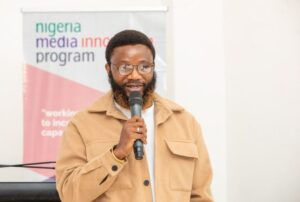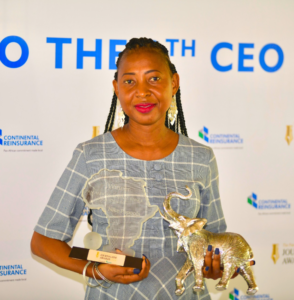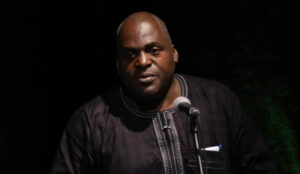He is a journalists’ journalist. If you call him a veteran, you would not be faulted. He joined the pen profession in 1962 and for decades, he discharged his duty to the admiration of his readers. His decision to go into journalism was not accidental.
“While I was in school I had some role models. They were journalists, and known columnists of the day. Aiyekoto, the late Chief Bisi Onabanjo was the number one on my list. His writing was like Bible to me. I found Aiyekoto column irresistible. He was on he Daily Express at the time. There was a columnist called Ebenezer Williams, on the Morning Post. I had some classmates who had similar interest. Notable among them was Duro Onabule, who later worked in the National Concord and from there went to serve as General Babangida’s Chief Press Secretary. During break, we would sit down and discuss all the columnists; especially their style of writing and many of us just decided we would become columnists. That was the foundation.”
Perhaps, the highlights of his practice, which he began at the Nigerian Tribune was his coverage of the Nigerian Civil war. He was to later sojourn with the BBC from where he eventually retired. In this interview, he spoke on his first love, Journalism, the Daily Times crisis, how he would want to be remembered and other matters.
Which school did you attend?
I attended CMS Grammar School in Lagos. I was the firstborn of my parents so immediately after I left school, I had to start working. That was the end of my formal education. Three years after I left school, I began my journalism career in the Nigerian Tribune newspapers in Ibadan. It is a highly political newspaper owned by a political family and the paper ran into trouble water when the head of the family, the late Chief Obafemi Awolowo got into trouble and was convicted. Salaries were no longer regular. They were not even guaranteed, but for political reasons, most of he employees there chose to stay and weather the storm.
When was this?
This was between 1962 and 1964. After that, one could not continue to live on political convictions alone, one needed bread. So, I left the Tribune, started with the Daily Express, which was published in Lagos but I was based in Ibadan. I was there for two years. Then I too got into some trouble inspired by politics. I wrote a story then about a politician who was charged with armed robbers. It was published but the government denied the story and took me to court.
Then I was charged along with the Editor who was a very influential man at that time, Chief Olu Adebanjo. Chief Adebanjo was angry, so he decided to fire me. I ran to Lagos and the Editor pleaded with Adebayo who was the editorial director, so I was posted to Lagos and put on the Sports Desk. I was covering all beats in Ibadan, but I was now put where I was not likely to cause any trouble and that was sports. A few months later unfortunately, that was 1967 December, the paper folded up and Chief Adebayo gave us very flowery recommendation letters with which we got employment in other newspapers.
So, after that I found myself in the Daily Times, first as a freelance reporter for some months. Later I was given employment. Unfortunately, there was no room in the newsroom so I was posted to sub-desk as a sub-editor.
What inspired you to go into journalism right from school?
When I left school, I worked in the civil service as a clerk for a year. The next thing was to look for an opening in any newspaper. That was how I found myself in the Nigerian Tribune. I started my career as a freelance reporter but some reporters left for greener pastures and created room for those of us who were at the window. That was how I got my first staff appointment. So, at the Daily Times I cut my teeth on the sub-desk, and finally went into my first love, which was reporting.
I got that because the Nigerian Civil war had just started, in 1967 and the Ministry of Defence offered to take reporters from the various newspapers to the warfront. My editor remembered that there was one young man on the sub-desk, so he sent for me. There was a plane to take reporters to Kaduna that night. From there, we were taken to the warfront by the military PRO. I told my editor that I would need some money, because at that time I was broke and he obliged me. He merely signed and asked me to collect the money from the cashier on the understanding that I will turn in my report the next day. So, that was how my serious professional career started. I remained at the warfront till the end of the war. `
What was your experience at the war front?
It was a terrible experience, I must confess. At the beginning, don’t forget at that time I was just twenty years plus. I found it exciting and because the Nigerian Army was so obviously superior, everything was like clockwork, they plan to move from point A to point B, 10 o’clock in the morning and they will move, whatever resistance they met on the way will be crushed. I thought this thing was so good and I became more Nigerian, there was no reason for me to be afraid at the beginning. A reporter had been there from the New Nigerian from the first week of the outbreak of the war. We were told that he was accompanying the troop. Unfortunately, he died at the front, so I always had him on my mind that the only useful reporter anywhere was one who was alive to write.
In this newspaper business, you cannot write a report when you’re dead, so my first consideration was to remain alive. I got very close to the commander so I had access to intelligence reports from there. If a sector was too hot, I would stay back, when things calm down, I will move in with the commanders. That way and with God’s grace, I survived all the operations.
What was your mother’s reaction to this development?
Luckily, I wasn’t living with any mother. I saw it as a routine assignment. I didn’t tell her because I didn’t consider that there was anything important to tell her but later she got to know through my reports at the Daily Times. I was told that she cried initially but later she had to resign herself to the fact that I was there working. She later told me she went on indefinite prayer and fasting on my behalf. So, apart from my care at the front, my mother was on her knee most of the day praying for my safety.
One lesson that I learnt during the war was that a reporter must always see himself as a reporter. Whatever you are, you must not get involved either emotionally or physically. See yourself as a reporter, leave the fighting to the soldiers, leave the rioting to the protesters, you must not take sides otherwise you would have dropped your guard and you would have exposed yourself to serious consequences. I considered myself as a Nigerian so when the Nigerian troop did well, I was happy to write a story. When they suffered reverses, I wrote the stories as the war progressed. When fighting became tense, I had to think of my own situation and I took the appropriate decision, I knew when to go our with them, I knew when to run. When the rebel soldiers invaded Western Nigeria, I was with the troops in Ore, the boundary between the South West and the Midwest, I was relaxing with the GOC, in his office that fateful morning when we heard gunshots. After that some officers came in, invited the GOC out, they held discussion and later I saw that everybody was running and packing, I knew I had to move too.
Are you planning to write a book on your war experience?
I hope to finish it soon and hope to put it out. May be when I do that I will make some money.
Beyond all these how do you relax now?
I wake up in the morning, switch on my radio set to listen to press review, come out to the living room, switch on the TV, then for the next three hours watch news programmes, straight news discussions and analysis. So, by noon, I am ready for the day. If I have nowhere to go, I go back to bed and if I have anywhere to go, I get some things done. In the evening everybody is free, I go to the Island Club and spend time with colleagues and return when I feel like going back to bed.
What kind of family do you have?
Well, I have one wife, in whom I am well pleased. I am happy I didn’t make the mistake of getting another woman outside the home. I have four children, all girls.
How would you love to be remembered?
Oh, I love to be remembered as Sola Odunfa, a reporter who tried to do his job well, nothing more. I would be proud, in fact, I don’t know why, when people refer to me as a journalist, I don’t quite appreciate it, because the profession is so wide, but just call me Sola Odunfa, news reporter, and I am happy.
At what point of your career did you decide to join the BBC?
When I left the Daily Times in 1979. There was a crisis in Daily Times and I was one of the leaders of the rebel group. The government of General Murtala Mohammed instituted an enquiry into the company’s crisis. At the end of it all those who spearheaded the rebellion where shown out of the company. So, I lost my job.
Were you the leader then?
It wasn’t a union issue, it was an editorial matter. There was a military coup that day, the editor came to the office in the morning, collected all the stories, got the paper made up and then decided to shut down the paper at about 6pm, because there was curfew at 6pm. He rushed everything and told everybody to go home leaving some sub-editors and technical corpers. This in my opinion was a stupid thing to do on a coup day. An experienced reporter would have known that there would be a developing story. We didn’t even know who the Head of State would be and here was a situation where the Editor of the biggest newspaper in the country closed, went home. An enterprising assistant stayed behind, contacted all his sources and got a great story, which no Editor would have missed. The management decided that night to remove the Editor and appoint another person. We said no. That was highhanded, because the management knew the limitations of this man before he was appointed Editor. We asked that the Editor should be given enough time to test the ropes. We may have been wrong or right, but that was exactly what triggered off the crisis.
Who were the other fellows at that time?
There were about nine of us and all of us were relieved of our appointment. The government later reshuffled the management itself and the crisis ended thereafter. I went into various other newspapers but I think the last one was The Punch newspaper.
After I left The Punch, I set up something like a small news agency and I entered into agreement with some newspaper who could afford my fees principally the Times group, because most of the managers there then were my colleagues. One day, I went to the Daily Times to visit the then Managing Director, Segun Osoba who later became Governor of Ogun State and he asked whether I was being paid regularly by the various editors and I said yes, and thanked him. When he told me that he was travelling to the UK that night, I remembered that he had this contract to freelance with the BBC. I asked whether he was still freelancing with the BBC, he said no. So, I asked him to introduce me to the BBC. He asked me to write a current story that he will take to London. Two days later, I heard my report on BBC afternoon programme, Focus on Africa. I was so excited.
Shortly after that, the Editor phoned me from London and right there on the phone we reached an agreement. He gave me their rates and told me what to look our for and that was how it started and I think that was 1982 and I did that till.
On my sixty-fifth birthday, I walked up to the Editor and told him that I would be leaving that day. He accepted it because I had told him in Nairobi that I will retire fully on my sixty-fifth birthday. When he confirmed that I meant it, both of us then walked into the general office, it was a very happy day for me, as the Editor announced that I had decided to leave. Suddenly, everybody crowded round me and there was an impromptu party. I felt good as I walked out of Bush House that day. I also thanked God that I was leaving this job on a high note and I was happy.
From hindsight now, how would describe the high point of your career with the BBC?
I don’t know about BBC, I can only talk about my career as a freelance journalist. When I was writing between 1985 and 2008, I was not writing reports only for the BBC but I could write for other stations. I think the high point of my career at Britain was during the height of the political crisis involving the late Chief Moshood Abiola who was believed to have won the 1993 elections and the crisis immediately after that.
Though that single report, somehow colleagues round the world began to believe in my professional competence and integrity. So, I found people calling in from radio stations, which I have never heard of from all over the world and I think what accounted for that was that when Editors needed such reports from Nigeria and they had nobody, they would call other stations which had people and everybody was recommending Sola Odunfa in Lagos. So, my telephone number became so popular within newsrooms around the world. At a time, I couldn’t use a diary anymore. I would put down A4 sheet to jot down what appointments I have made and I found I was booking appointment around the clock. At the height of it all, I would have about two- three hours in between interviews. It was very exciting and I saw it as a way of projecting my own country.
Looking back, how does it feel to be a renowned broadcast journalist known around the world?
Now I look back and all I do is thank God. I feel satisfied because there was nothing I should have done, which I did not do. There was no opportunity, God offered me, which I did not seize. My entire career, I wasn’t looking for money, I was looking for professional satisfaction, which I got eventually. I say and believe that I have lived a very satisfied life.
•Culled from VON






abiola aberuagba
I enjoyed his reports on focus on Africa during the June 12 crisis in Nigeria.